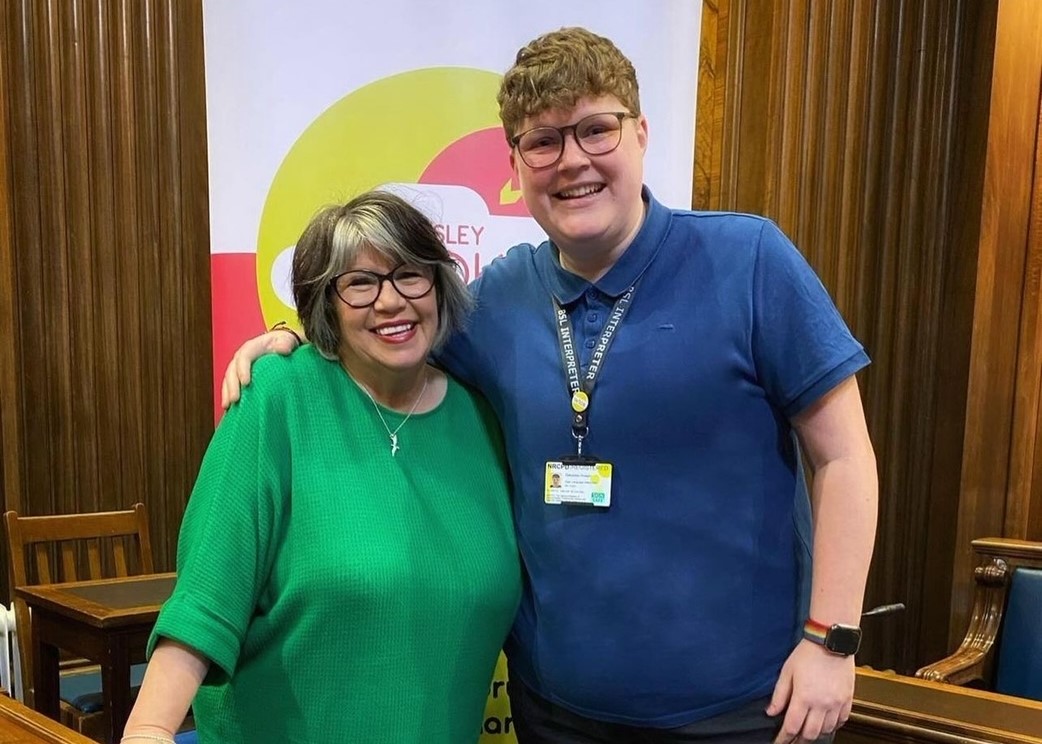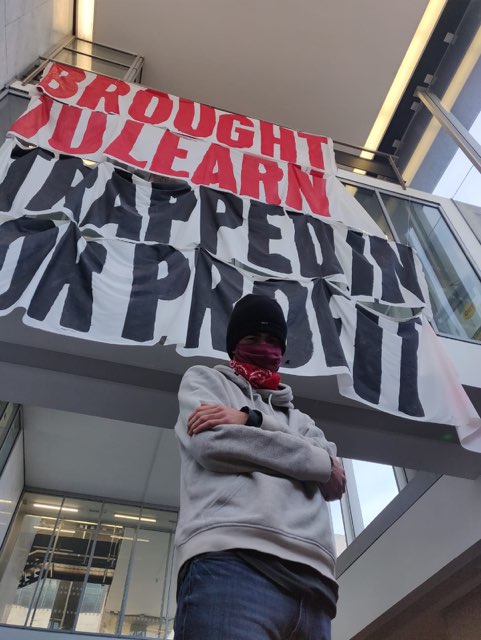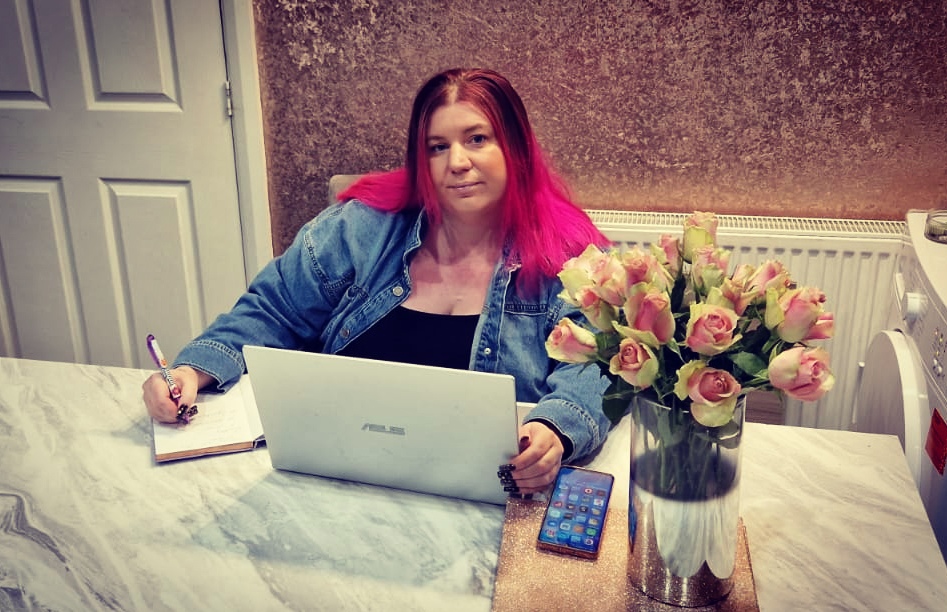Barnsley is breaking boundaries by hosting its first ever Book Festival to showcase the variety of creative talent across the South Yorkshire town.
A range of events are taking place through February and March to champion local literature, art, and culture.
To some, Barnsley may not seem like an obvious choice for a literature festival, but for romance author Milly Johnson, who launched her new book The Happiest Ever After at the festival, it makes perfect sense.
“Barnsley having a lit fest? Why wouldn’t we? Per square foot I think in Barnsley, it has far more artists, sculptors, actors, far more creatives than many towns I can think of,” says Milly.
“Everybody else in the country has been ripping down libraries. Barnsley put one up”
She adds that Barnsley’s status as a former industrial town still influences how outsiders perceive the local people and their heritage.
“If you tell someone you’re from Barnsley, there’s this thing where they have to go ‘Oh Baahhhhhhhhhrnsley’. People who have never been here associate Barnsley with pits and mines, they associate us with Kes, with muckstacks, with whippets, with flat caps. I’m almost on a mission to show people that the Barnsley of today is not the Barnsley of yesterday. Everybody else in the country has been ripping down libraries. Barnsley put one up.”
The festival was made possible by funding from Arts Council England, as part of the National Portfolio Organisation for Barnsley. It includes talks from authors, art workshops, poetry sessions, and drop-ins for families, welcoming visitors of all ages.

Jemma Conway, one of the organisers of the festival and programme manager at Barnsley Libraries, says: “We really wanted an opportunity for local people to see what local people have achieved. People like Milly Johnson, Andrew and Ian McMillan are really big household names, and they’re also massive champions of literature in Barnsley.”
Milly recalls the challenges she faced when trying to break into the industry as a northern writer. She had no choice but to spend around £20 to send a manuscript to London.
“That was a big thing,” she says. “It was a lot of money to have to send it down. It’s expensive before you’ve even started.”
Born and raised in Barnsley, Milly dreamt of becoming a writer but was unsure whether she could make it in the industry. After studying Drama and Education at the University of Exeter, she became an accountant at a building society, and started ghost-writing on the side, but her first publishing deal didn’t come until she was 40. She is now one of the UK’s Top 10 Female Fiction Authors.
“It was only when I embraced my northernness that I managed to break into the publishing industry”
Historically, the London-centric nature of the publishing industry permeated the kind of romance literature that was popular. The 90s and early 2000s saw the heyday of ‘chick lit’ – think Bridget Jones’ Diary or Confessions of a Shopaholic – which centred around the disastrous love lives of women in their twenties living in London and working in PR, journalism or publishing. The genre has fallen out of fashion in recent years, partly because many of them reinforced tired sexist tropes, but also because their lives were not relatable for most women, particularly for working-class, northern women.
“I loved them, we all loved them, but they didn’t relate to my life,” says Milly.
The need for ordinary, northern, female voices to be brought to the forefront in fiction helped Milly carve out her own niche within the genre. “Ironically I didn’t think anyone would be interested in the north. But it was only when I embraced my northernness that I managed to break into the publishing industry.
“I think probably at the time [the publishers] saw [that] my books could relate to all women of all ages. I’m very very lucky to have a great spectrum of readership, and I just appealed to ordinary women. I know that living and breathing in the north I can write authentically about it. The world of literature has opened up to appeal to everybody, as it should. In a way I was representing a minority class. Working-class working people were not represented in books, and there was a need for it.”
Michelle Rawlins, who is also due to talk at the festival this Saturday (February 24), is the author of Women of Steel and the Steel Girls series, which are based on the lives of real women who worked in Sheffield’s steel works during WWII. She says: “I think it’s very important that every part of the country is represented in literature and it’s another form of memorialization.”
The perception that careers in the arts are limited to well-off, well-connected individuals living in London is pervasive, but in recent years things have improved for northern writers. More publishing houses have moved up north, with Harper North (the northern branch of HarperCollins) being established in Manchester in 2020. Milly and fellow author, Trisha Ashley, set up an X (formerly known as Twitter) account called Northern Authors. It aims to create an online community for northern writers, illustrators and bookshops, making it easier for publishers and agents to find them.
The Barnsley Book Festival has been welcomed as an opportunity for northern literature to be championed, while showing off the beauty, heritage and culture of the town. Michelle says: “I’m always happy for the Steel Girls to be celebrated, but it feels more special that it’s in Yorkshire, because that’s where they belong.”
For Milly, headlining a book festival in the town where she was born and raised is a “pinch-me moment”. She says: “I love the fact that we have this festival here, and to show off. We’ve got a great town centre, it’s brilliant, it’s bringing people in. I hope that they carry on. I hope that this is the first of many.”
The organisers, authors and artists hope the festival will encourage more young people in South Yorkshire to pursue the arts. Jemma says: “It’s great that we can show our young local young people that this is a career, [and] that we’ve been able to host [the authors] as part of the festival, and especially on peoples doorsteps. We’ve got an amazing art scene, we’ve got an amazing literature scene so why not celebrate that?
“You don’t have to travel to London to see an amazing author. You can do that in Barnsley as well.”
The Barnsley Book Festival is taking place from Friday 2nd February to Saturday 23rd March 2024.




